Rice fields worthy of strict JAS Organic certification
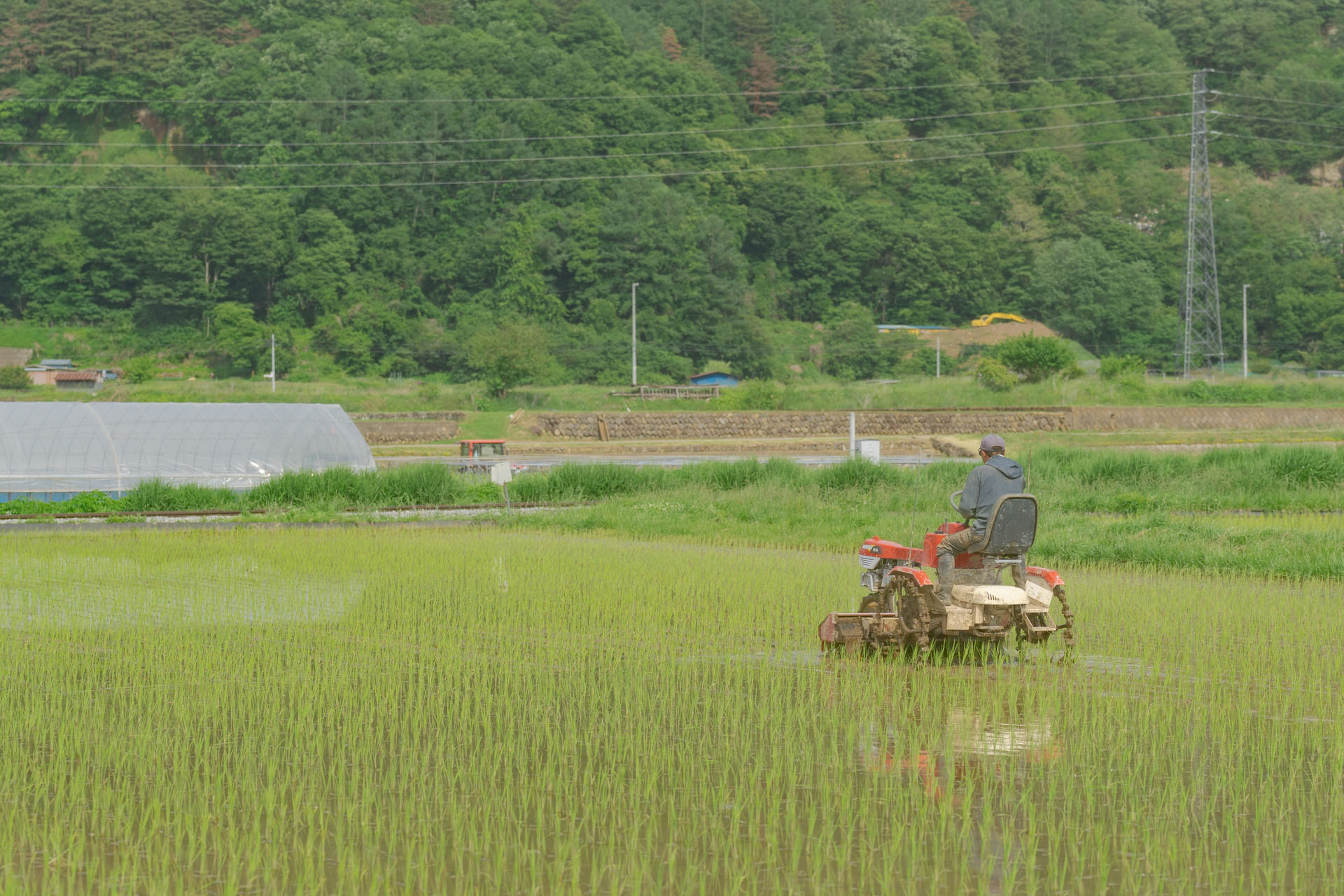
Enveloped by the quiet natural beauty of Kiyokawa in Saku City, Tajima tends his organic fields as a labor of love. He spends his days growing rice, hothouse tomatoes and outdoor vegetables, a stark contrast to his previous work in media and the very different landscape of urban Tokyo. He sometimes wrote articles on agriculture as part of his previous job, and gained an insight into the hardships farmers face and the questions hanging over the future of agriculture.
He had no idea his interest would one day lead him into the fields, but chance can easily take you down a path you never imagined. Tajima happened to look at a map of organic farmers in Japan, and noticed that one of them was an old teacher of his. Struck by the idea of growing cherry tomatoes organically, Tajima arranged to visit him in Saku City. It was while learning organic farming methods that Tajima started helping out in the rice fields, and found himself unexpectedly fascinated by growing rice.
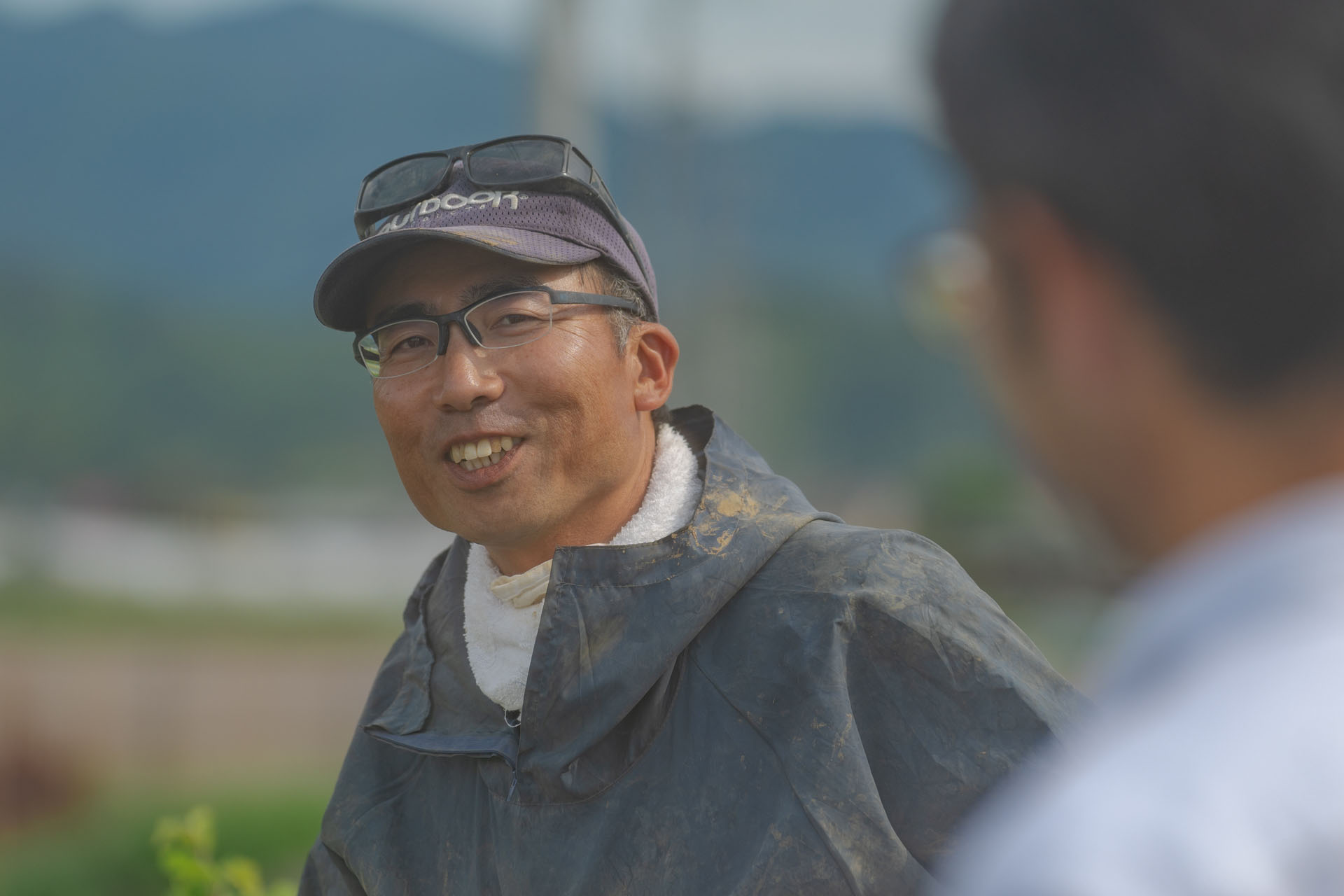
。He struggles to explain it, musing that his passion for growing rice could come from being Japanese and therefore fascinated by his country's staple crop, or that this calling was somehow already present and just waiting to appear. Whatever the reason, before he knew it he found himself bewitched. Organic farming is demanding, and satisfying the criteria for the Japanese Agricultural Standards (JAS) organic certification is even more so. Farmers have to document the complete history of cultivation, every single material used and show that they were all organic, producing thick stacks of paperwork required by the Japanese government. And the critical requirement for certification is 3 years of purely organic cultivation, so there is no way to become certified in the first year. Unless you are gifted land that already satisfies that requirement, as Tajima was by his old teacher.
“I was overjoyed to have land that had been so carefully tended and developed handed over to me, and it was a huge help,” Tajima remembers gratefully. His teacher probably decided to pass his land to Tajima because he knew he could trust him. Despite only having moved to Saku the year before, Tajima was able to start growing rice and vegetables organically from 2008 thanks to this gift.
Encounter with Tsuchiya Brewing
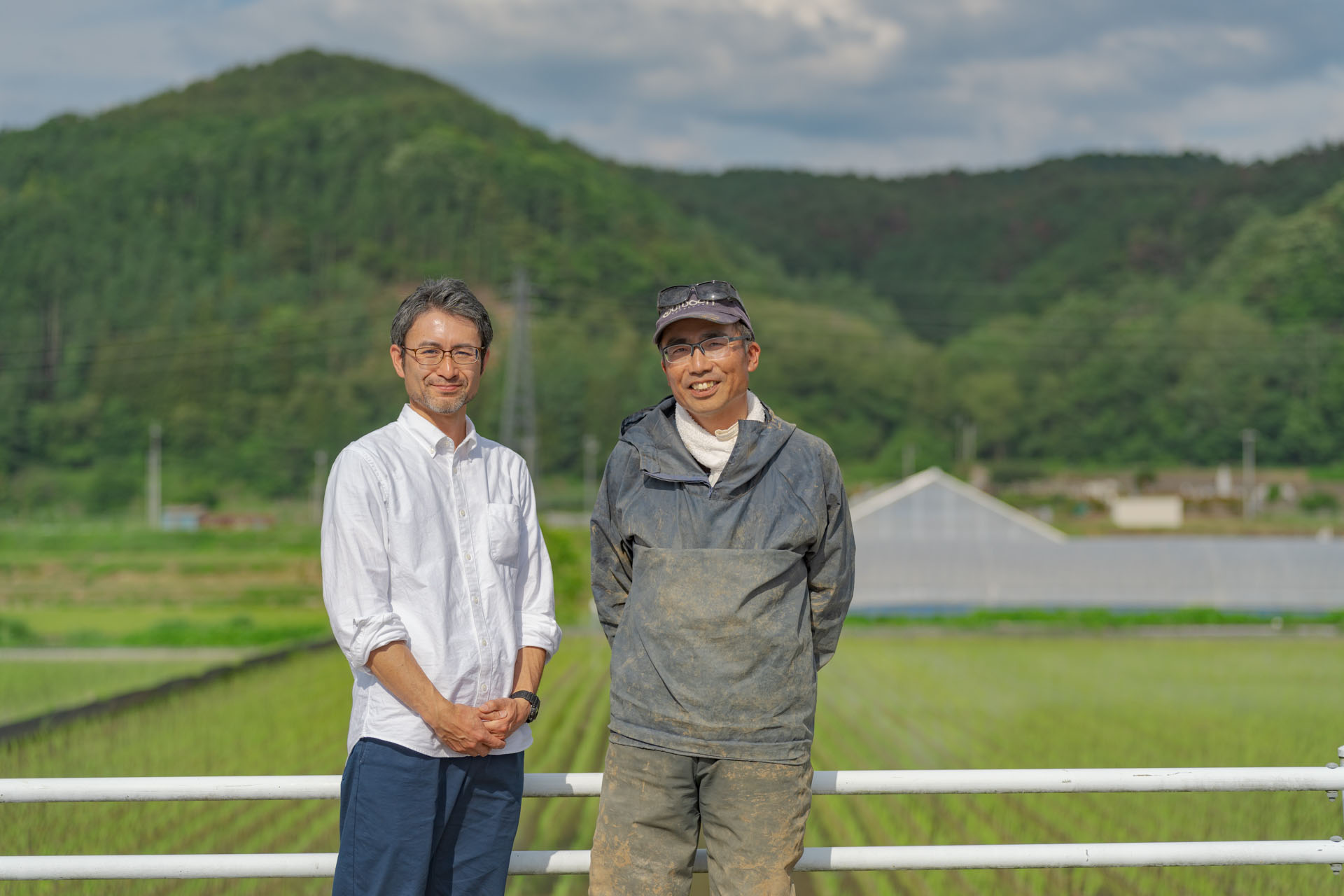
Tsuchiya Brewing was founded in 1900 and originally made sake in another area before moving to Saku, which accounts for their relatively late start compared to other local breweries. They have always had a progressive outlook, for example they were the first brewery in Nagano Prefecture to start making ginjo sake. Satoshi Tsuchiya, the sixth-generation owner, is a quick thinker who never hesitates when faced with any challenge that might improve his brewing.
Satoshi was approached by famed Japanese master sommelier Yutaka Takano, the man responsible for popularizing Nagano Wine as a brand in Japan. Takano suggested to him that organic cultivation might lead to some interesting developments. This in turn led Satoshi to Tajima, and influenced the brewery's decision to use organically grown sake rice. However, Tajima had no experience growing sake rice and hesitated to take on the additional responsibility when he already had his hands full with Koshihikari table rice. His teacher gave him the push he needed: “What are you doing, not supporting a local business?” He started growing the sake rice variety Sankei Nishiki. It was in the process of setting up a private-label brand with Satoshi and Takano that Tajima realized the value of organic rice, and his Sankei Nishiki rice was transformed into the sake “Akanesasu BIO”.
The problem with great soil

The rice fields Tajima tends are the perfect environment for rice plants. Wet cultivation fields tend to be one of two soil types: gray lowland soil or brown forest soil. Gray lowland soil retains fertilizer well and is suitable for using farming machinery. Tajima’s fields were brown forest soil, which is similar to clay and holds lots of water, making the land ideal for growing rice plants. On the other hand, the density of the soil makes it very difficult to use machinery – the earth can even pull the treads off combine harvesters.
Tajima emphasizes that the timing of harvest is critical for rice. With gray lowland soil, farmers can aim for a specific day and prepare to harvest at the right time, but sometimes it’s impossible to get into brown forest soil fields on the right day. The soil has many disadvantages for the people working it but is ideal for the plants growing there, so toil in the fields is rewarded in the form of superb quality rice. Organic principles forbid treating crops if they become diseased, so Tajima likens organic farming to raising children such that they never catch a cold.
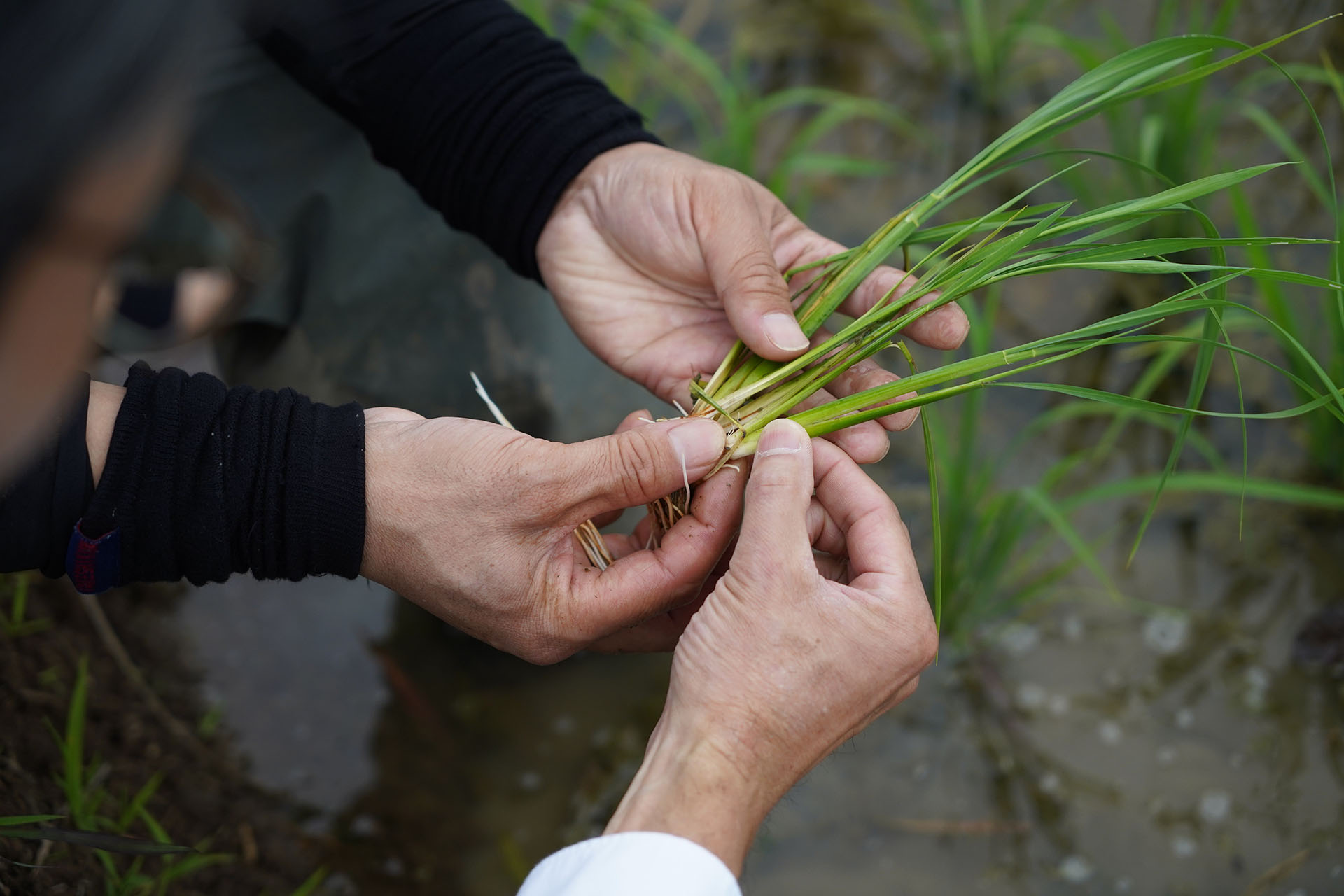
In conventional farming, fertilizer ensures that crops have all the nutrition they need, but nutrients in organic farming are affected by ambient temperature – only 80% is available when it’s too hot, and when it’s too cold that can drop to as little as 20%. Farmers are also at the mercy of the climate, so the last few years have been very difficult. Organic farming shows no mercy, insisting that “there is an optimal form for the crop in any situation”. There’s no way to recover what was lost, so the rice plants have to be in perfect condition from the moment the seeds are planted until harvest.
Despite these challenges, Tajima is still drawn to organic farming because of the way it integrates with the life all around it. “The principles behind organic methods respect the natural environment, the ecosystem. Maybe it appeals to me because it respects the living crops too,” Tajima muses. All these elements come together in Akanesasu BIO: the living crops, the tenacious soil, respectful organic farming, sake brewing with its reliance on microorganisms, the technical skill of Tsuchiya Brewing. Tajima happily assures us that he drinks the sake made from his rice. The final product is full of fruity aromas alongside smooth mouthfeel, elegant savoriness with clean acidity, all balanced to produce an exquisite flavor profile.

Akanesasu BIO
The Sankei Nishiki painstakingly grown by Katsuji Tajima joins forces with the brewing prowess of Kamenoumi Tsuchiya Brewing to deliver the vitality and bounty of earth and crops, the rigor of organic farming and the invisible work of microorganisms, culminating in Akanesasu BIO. Fruity on the nose and smooth on the palate, it maintains a delicate balance between elegant umami and clean acidity to present a refined flavor profile.
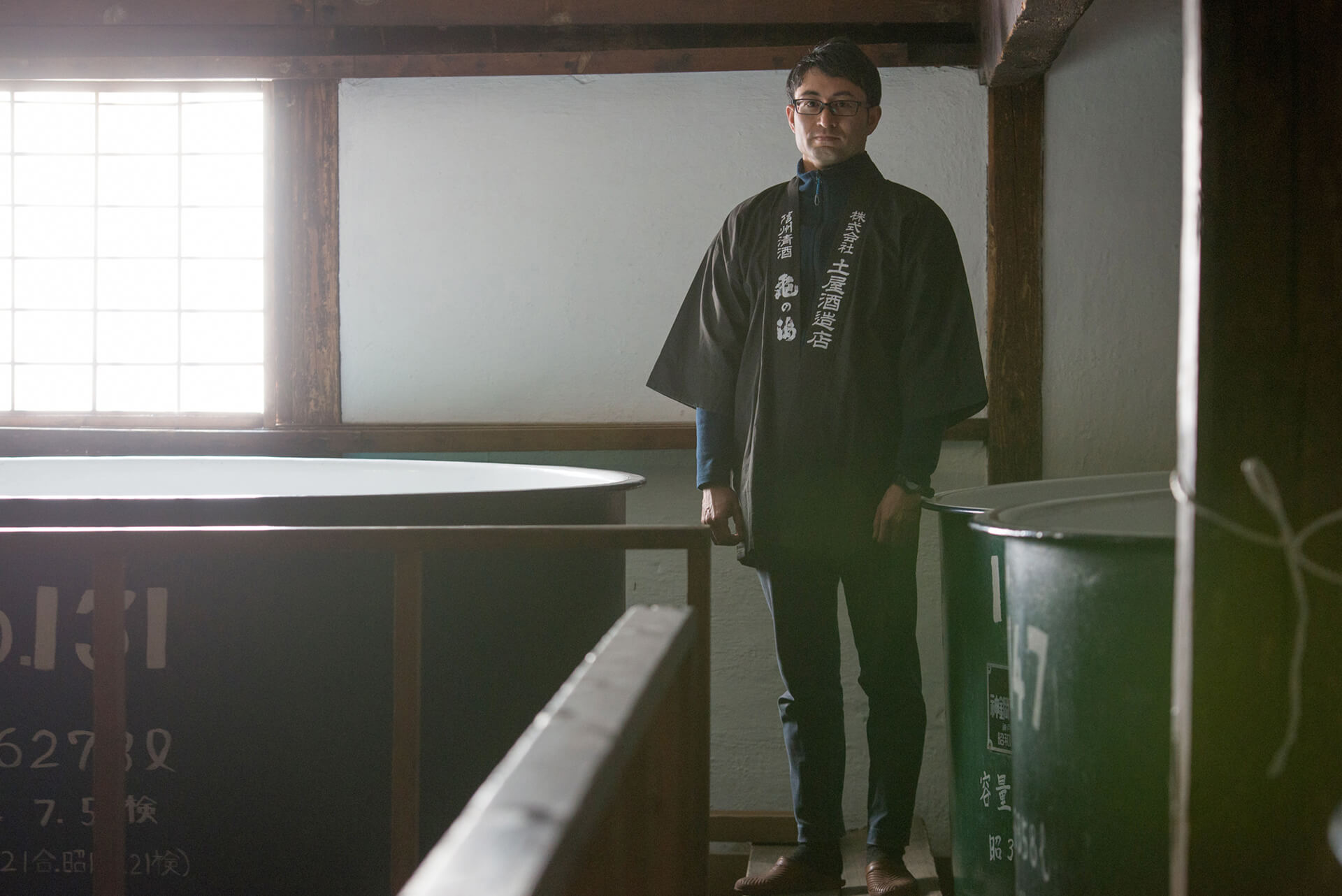

Tsuchiya Sake Brewery
A Brewery That Reflects
the Hearts of the People
Named for good luck, our Kame no Umi (Sea of Turtles) brand sake has been brewed for over 100 years in hopes of providing joyous occasions. We have been brewing our rich sake in a historic wooden brewery.We have been meticulous in our brewing, which has resulted in our marketing of Nagano's first ginjoshu, a sake made from highly-milled rice. In addition, we have recently been challenging ourselves to make sake in Asashina Gorobei Shinden (Saku City), a land famous for quality rice, using organic sake rice. We are a brewery that walks with our community to create sake that expresses their thoughts.
1914-2 Nakagomi, Saku City, Nagano Prefecture
TEL:0267-62-0113
Brewery tour : Partial tour available with a reservation